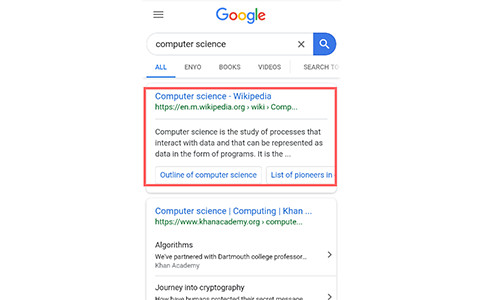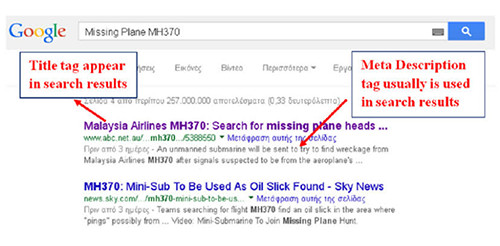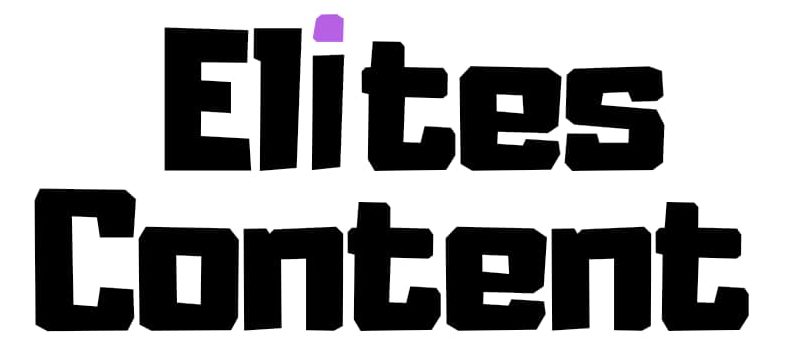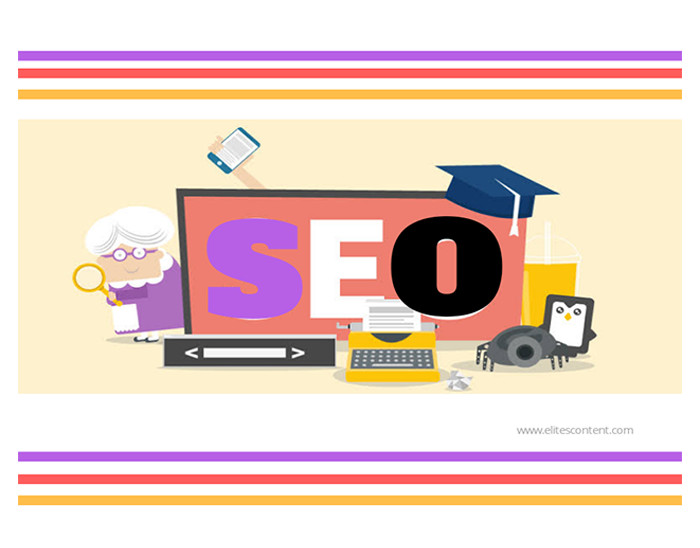The term search engine optimization is becoming as common as you can ever think in the internet world.
Yet, the term still remains fuzzy to a good number of persons; especially beginners in the digital space.
You may have come across other articles talking about the same subject matter yet, there seem to be lots of questions unanswered.
Relax, this article provides what search engine optimization is all about in its simplest form.
You will understand what SEO is, why it exists, and who needs it and how it is categorized.
Let’s begin with the definitions of terms.
What is Search Engine Optimization?
Search engine optimization is an effort to enable web content to appear at the highest position of a search engine result page (SERP) without paying any charge to the search engines.
It is a digital marketing channel that enhances the chances of gaining more online visibility or enable web content to show up on the top of a SERP at ease.
Search engine result page is what pops up as you key in what you are looking for in search engine platforms such as Google, Yahoo, Bing, Yandex, etc.
For example, if you are looking for the meaning of the term “Computer Science” and you keyed in the term in a search engine like google.
Guess what happens?

Everything that showed up is a search result or called the search engine results pages (SERPs).
So, from the SERPs, Wikipedia gave an instant and concise definition of what the user or searcher is looking for.
These terms Search, Engine, and Optimization are generally referred to as SEO.
Let’s break the teams down a bit to enhance comprehension.
S= Search: This is a careful inquiry or looking out for something. A Search occurs when one is looking for something; maybe by asking questions or moving around.
We are referring to the search that is usually done online. Such as using internet-enabled devices like mobile phones, tablets, desktop, and personal computer.
For instance, the search for computer science in the example above.
E=Engine: This is a machine that aids perform a specific function. An engine is a tool or device that could be mechanical or electronic in nature.
For example, a car has an engine that produces an electric current. This current is transmitted into other parts of the car to function effectively.
But here, we are referring to internet-related engines or tools that facilitate a specific function online.
Just like the car engine facilitates car functions, internet search engine facilitates users to search for things (words, terms or query) online.
O=Optimization: This is an extra hand giving to an object or something to maximize its functions.
Optimization implies upgrading or boosting the result or outcomes of a particular activity.
Notably, we are referring to boosting web content in order to appear on a search engine’s result page at no charge attached.
So, putting the three terms together, Search Engine Optimization or SEO means- giving extra hand to allow search engines effectively display what an online user is looking for on the internet at no cost.
SEO is not a pay to play
The search engines accept to display your online contents in a free and massive manner as far as you obey their rules.
These imply that you don’t need to pay Google or Yahoo to display your contents if your website or web contents meets SEO requirements.
I guess these explanations are simple?
If yes, clap for yourself. If no, just put some smiles on your face and continue reading.
It will become explicit as you continue.
So, let’s walk through some definitions to enhance comprehension.
How Have Others Defined Search Engine Optimization?
Let’s start with Moz, a leading search engine agency:
Search engine optimization (SEO) is the practice of increasing the quantity and quality of traffic to your website through organic search engine results. Moz
Search engine optimization (SEO) is an area of website development that seeks to improve the way content is ranked by search engines in organic search results. Whatis
SEO is the practice of optimizing websites to make them reach a high position in Google’s – or other search engines’ – search results. Yoast
From the definitions above, you should now understand that search engine optimization is basically about improving or boosting the position of your web contents in the SERPs.
Who Needs Search Engine Optimization?
To know who needs SEO, think of the internet as a busy community crowded with different persons, different buildings and similar ones too.
Then, think of your website as your own building or living room.
Imagine that you have a very important visitor (friend, colleague or relative) coming to visit you at home.

Image Credit: Europcar
Guess what? He/she has been roaming around the street for hours in search of your house but can’t find it. There could have been lots of building around and nothing to assist your visitor to come directly to your building at ease.
Especially, when you don’t have an agent that you paid to assist in guiding and directing your visitors in the right direction.
You could wait for all day long and yet not receive your guest because nobody is standing at the junction to bring him/her in.
But, think of it this way. You could have helped matters if you had a signpost, a map or a perfect description that will aid your visitors to find your house at ease even without paying an agent.
Same applies to your online presence. You could have a beautiful website or web content but visitors or users may find it difficult to see it when they search.
But, by providing relevant content, using a better headline, right linking, applying appropriate tags like meta description, meta tag, headings – H1, H2, your web content gets more friendly with search engine.
Also, your web content gets a higher chance of being seen by a guest (online searcher).
One way to enable people to see your web contents on a search engine’s result page without paying the search engine is SEO.
Only those that want to appear at the top rank of a SERP organically (not paying Search engines) needs search engine optimization.
This is because you could still appear at the top using other means like Pay Per Click (PPC), sponsored ads etc.
Generally, a paid form of ranking in the top of SERPs is called Search Engine Marketing (SEM) while none paid form is called Search Engine Optimization (SEO).
Why Search Engine Optimization?
You may be wondering why one has to optimize one’s website or web content for search engines to crawl.
Are search engines not smart? Do they have the ability to understand the content a user is looking for (search queries)?
Most one optimized a web content for search engines will understand?
The answer is Yes.
They have brains and they are smart. But, things have changed, lots go online every minute. You don’t just haphazardly publish a website or a web content and expect them to show it to users.
You need to help engines help you by making it easier for them to classify, arrange, and rank your web contents.
To gain visibility, you need to speak in their language for them to work smart. That’s why optimization is of necessity.
But why is Search Engine Optimization Necessary for your Online Business?
If you have been following up with this article, you should know that SEO is crucial.
It enables both your potential and actual customers to find your web pages. That alone even makes it a big shot.
However, let’s note specific reasons you need it for your online business. Such as:
Trust Enhancement
When potential clients search for what interests them and find you in the SERP, your website receives some level of credibility.
When you appear at the top of the search engine result organically, the user believes you will be more helpful.
The idea is – hey! You didn’t just reach the top for jokes, your web content should contain exactly what am searching for.
That’s what will run through the searcher or user’s mind.
A study from Brightedge showed that 51% of all website traffic comes from organic search.
This implies that more than half of the people that visit the majority of websites come from an SEO effort.
User Experience Enhancement
A good practice in SEO focuses a lot on the experience users will get from what they’re searching for.
Optimization of a web content helps search engines to understand more about your web content. But, it does not mean that the human side is left out.
In fact, Google and other search engines don’t joke with the user experience.
Don’t know if you have heard about this popular saying – “Google loves you when humans love you”.
So, search engine optimization is necessary if you want Google to respect you or love you.
Cost Effective
Using SEO to gain visibility is relatively cheap.
Not only that you could possibly rank #1, but you also don’t need to bid on any keyword, you don’t need to pay search engines a damn.
Apart from the time spent in following SEO best practices, learning and keeping pace with algorithm dynamics or probably hiring an expert, you got nothing else to spend your resources on.
Sustainability
The necessity of search engine optimization in your online business does not just beckon on the fact you will have a good chance of appearing at the top of a search engine result page (SERP).
You will also retain the top position for a long time as far as you keep pace with SEO changes and best practices.
I am not saying that search engine marketing (SEM) is not good.
The truth is, if you pay to appear at the top, without SEO you will have to keep paying else you fall back to your original point.
Investment in search engine optimization as a digital marketing strategy is an investment for the future.
It’s like building a solid foundation for your website or web contents. You will keep gaining its benefits as long as you don’t play pranks on it.
What are the Basic Categories of Search Engine Optimization (SEO)?
Sincerely, the world of SEO is very broad and you cannot cover them at once.
It has different categories which are approached differently. The two basic approaches or routes are Black-hat and White-hat SEO.
Related: Black And White Hat SEO: What Are They Really All About?
However, SEO is broadly categorized into On-page and Off-page.
Although, in some cases, you could see or hear about a term like technical SEO. Technical search engine optimization expresses specific efforts in the website structure. They aid crawling and indexing of a web page.
This article placed emphases only on two broad categotries. Such as on-page and off-page.
So, let’s look at each of the two categories in brief.
What is On-Page SEO?
On-page SEO is what you do within your website pages or web content and structure to aid overall optimization objective. It’s also called on-site SEO because its focus is on the site.
Some of the activities performed here include the following sub-categories:
- Web Content
Web content is simply what both humans and search engines can find on your website. It could video, image, or text format.
The content of your
Imagine if a digital marketing company that deals on cars has a website that only contains information about food items, cloths, and shoes.
What will you call such a website? You probably going to call it an e-commerce website or store. Isn’t it?
So, your content is you. That’s one reason content marketing is taking very seriously today.
- Title Tag
A title tag is a hypertext mark up language, (HTML) that shows the title of a specific web page or web content.
It is usually what a user will see at first when a web content appears in the result pages of a search engine.
Interestingly, the title tag shows up in three key occasions: browsers, search engine results pages, and external sites such as Twitter, WhatsApp, Facebook etc.
Most cases, a well-crafted title tag is usually concise and captivating.
- Meta Descriptions
A meta description is a concise explanation of what a web page or content is about.
It is an on-site or on-page SEO activity that could lead to more click-through rate. A user will be willing to quickly click a link he/she feels to be more relevant. These have an effect on how the search engine perceives your website as well.

Image Credit: Researchgate
- Page Speed
Page speed defines how fast a particular page loads for a user to use. It is the time it takes for content to load completely.
- Internal Links
These are links to other of your web pages on a particular page or content on your website.
Linking your web content with other of your web pages appropriately is a way of improving the user experience. It also aids search engine robots to understand the page better.
- URL Arrangement
A URL (uniform resource location) is the permanent address of a content or web page on the internet. It includes the keywords that make up the link of your web content.
Structuring URL in a Seo-friendly manner for the sake of good practice in search engine optimization is a welcomed idea. Search Optimization practitioners don’t joke with it.
- Headings
The heading of your web content does lots of work for both search engines and for humans.
Appropriate use of headings allows both search engines and humans to understand the salient points of your page or content.
Some type of headings used includes the H1, H2, H3, H4, H5 etc. They usually indicate relevancy and importance.
- Alt Image Text
ALT is an alternative name for an image used on your web page or content. Search engines understand alt faster and utilize it while crawling and indexing.
Importantly, it tells what an image is about when the image did not display correctly for the user to see may be as a result of poor network service.
How about Off-page SEO?
An off-page search engine optimization refers to external links and signals done outside of your website or web page to improve website visibility.
Off-page is external and provides limited control, on-page is internal and provides unlimited control.
Some off-page SEO activities include:
- Backlink
Backlinks occur when other websites attach your links in their own websites.
The term inbound or incoming links are also used to mean backlinks since they are coming from an external source.
When a reputation website links with yours, it gives your website a link juice that tells the search engine your web content is important and respected by others.
- Domain Authority (DA)
A domain authority compare the ranking strength of a website, based on a number that ranges from 1-100.
DA (domain authority) was developed by Moz, it uses many factors like domain age, the number of external links etc to determine a websites domain authority.
- Social Media
Social media networking is an off-site activity they affect your site visibility over time.
As you keep interacting with social media platforms like Facebook, Twitter, LinkedIn etc, they send a signal to search engines.
Social media platforms have aided digital marketing efforts in so many ways. It’s no surprise that it falls in as a sub of off-page search engine optimization.
Final Note
The journey to search engine optimization is a planned and consistent one.
It isn’t also a haphazard stuff.
You don’t do one part and leave the other undone because search engines do not use only one factor to rank a website.
Gaining traffics organically may not be easy but, it pays more when done right.
Now that you have gotten a basic knowledge of what SEO is about, make sure you start right.

Jackson is an obsessed content marketing specialist. A brand storyteller, not a teller of stories. He is passionate about helping online businesses grow with compelling digital marketing strategies. Follow him on Twitter, LinkedIn, and Instagram.


